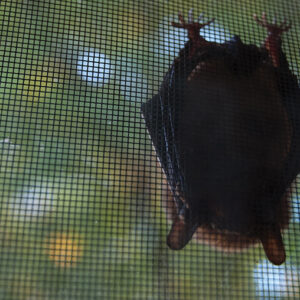
Bat Tests Positive for Rabies in Spokane County
Media Contact: Kelli Hawkins, SRHD | khawkins@srhd.org | 509.324.1539, c. (509) 994.8968
SPOKANE, Wash. – Spokane Regional Health District (SRHD) confirms by laboratory testing, that a bat found in Spokane County tested positive for rabies.
A Spokane County resident notified SRHD of human exposure to the bat. In accordance with WAC 246-100-197, SRHD staff advised the person to submit the bat for rabies testing. The bat was submitted to the Washington State Public Health Laboratory for confirmatory testing and was confirmed positive by Washington State Department of Health (DOH) on July 3, 2025. This is the first rabid bat reported in Spokane County and the second in Washington state in 2025 (Rabies Activity in Washington). The last positive case of rabies in a bat in Spokane County was in 2024.
The three people exposed have been notified of the test results and are in the process of receiving rabies post exposure prophylaxis and immunoglobulin.
Rabies is a virus that affects the central nervous system and can be fatal if untreated. Any warm-blooded mammal, including humans, can get rabies; however, bats are the only animals in Washington state known to carry rabies. It is required for dogs, cats and ferrets in Washington state (WAC 246-100-197) to be vaccinated against rabies and re-vaccinated following veterinary and vaccine manufacturer instructions.
Since bats are mostly active at night, to help prevent pets’ contact with a bat:
- Bring pets into the house at night.
- Keep all doors and windows closed unless screened.
- Close pet doors to prevent pets from going outside or bringing a bat inside the house.
When pets catch bats:
- Safely catch the bat if possible, taking care not to contact the bat (see below).
- Thoroughly wash any bite wound on the pet with soap and water while wearing gloves. Bats have small teeth and claws, so bite marks may be hard to see.
- Even if you don’t see a bite wound, contact SRHD at (509) 324-1560, ext. 7 for additional instructions.
- Contact your veterinarian for a rabies booster for the pet.
When bats are found on your property, contact SRHD and your health care provider when:
- People or pets have direct contact with the bat.
- A bat is found in a room or had access to a room with a sleeping person.
- A bat is found in a room with an unattended child.
- A bat is found in a room with a person under the influence of alcohol or drugs, or who has another sensory or mental impairment.
Bats are beneficial to the environment and should only be disturbed when they have been in contact with a person or animal. For example, leave them alone if they are just sleeping under the eaves of your house. For information on preventing conflicts with bats, see the Washington Department of Fish and Wildlife webpage - Living with Wildlife: Bats.
More information about bats and rabies can be found at srhd.org > Bats & Rabies. This page includes printable, pdf fact sheets regarding:
- Bats on your property
- Bats in contact with people
- Bats in contact with pets
- BatSmart FAQs
Spokane Regional Health District (SRHD) is a leader and partner in public health by protecting, improving and promoting the health and well-being of all people through evidence-based practices. SRHD is one of 34 local public health agencies serving Washington state’s 39 counties. Visit www.srhd.org for comprehensive, updated information about SRHD and its triumphs in making Spokane a safer and healthier community. Like SRHD on Facebook or follow us on Twitter to receive safety and wellness tips.
